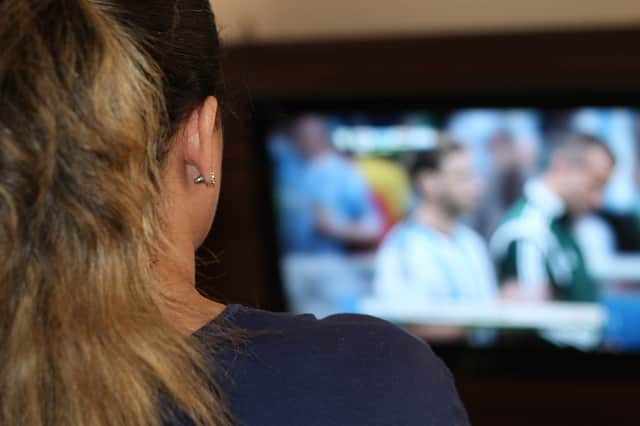More people opting for live TV than streaming services


An average week for most people in front of the television set consists of 11 hours of live TV, in comparison to far fewer hours of streaming TV services, surprising new research into people’s viewing habits has revealed.
As we continue to spend more time in our homes during the ease of lockdown, it appears Brits are seeking to make connections, and a study has revealed it’s even impacting what we choose to watch on television.
Advertisement
Hide AdAdvertisement
Hide AdThe research, based on a cross-section survey of 2,000 people, found that Brits are using their TV predominantly to watch live programmes (77 per cent).
This was in comparison to over half of those surveyed, at 53 per cent, who said they use their TV to watch streaming services such as Netflix, Amazon Prime and DisneyPlus.
In fact, when it comes to the number of hours spent watching TV in an average week, the data revealed that Brits tend to watch 11 hours of live TV, in contrast to six hours streaming TV including Netflix and Amazon Prime.
When quizzed on the ideal set-up for people at home when watching television, this involved the following criteria; being with your partner for 32 per cent of people, a takeaway for 26 per cent, a cup of coffee or tea for 35 per cent of responders, ideal lighting in the room for 40 per cent, and wearing pyjamas for comfy viewing for almost half of those surveyed, at 49 per cent.
Advertisement
Hide AdAdvertisement
Hide AdJo Hemmings, a behavioural psychologist, said: “During these difficult times, with more time at home than usual, a variety of household members to keep entertained, and our televisions providing a welcome distraction to the fast-changing world around us, it isn’t at all surprising that we are watching more TV than ever before.
“But the AO.com study indicates that we are moving away from the trend of watching streaming TV services and are returning back to watching live programming on a TV set.”
Hemmings continued: “The truth is that live TV watching is both comforting and reassuring.
“Our attention spans are diminished by raised levels of the stress hormones cortisol and adrenaline, and we can’t always concentrate on several hours of a TV series at once.
Advertisement
Hide AdAdvertisement
Hide Ad“We want to spend precious time with our loved ones, perhaps watching something that is familiar, nostalgic, gentle and not too demanding plot wise - as well as being able to keep up with the news of course.
“Watching TV with a takeaway has become a ‘treat’ more than a routine, and dressing down for comfort in loungewear and pyjamas has become the norm,” added the psychologist
Perhaps unsurprisingly, Gen Z (55 per cent) and Millennials (65 per cent) were the only age groups to reveal they favoured using their television for streaming services such as Netflix and DisneyPlus over viewing live TV.
David Lawson, managing director of electrical company AO.com, who conducted the research study, said: “The research shows how we are a nation of TV lovers, and in particular the popularity of watching live TV as it enables us to feel connected with others, which is more important than ever during this unprecedented time.”
Advertisement
Hide AdAdvertisement
Hide AdAs people turn more and more to their television sets in a bid to stay connected generally AO.com has reported a 146 per cent increase in television sales (year on year).
Its sales in its most recent week on this category were the highest they have been since Black Friday 2019.